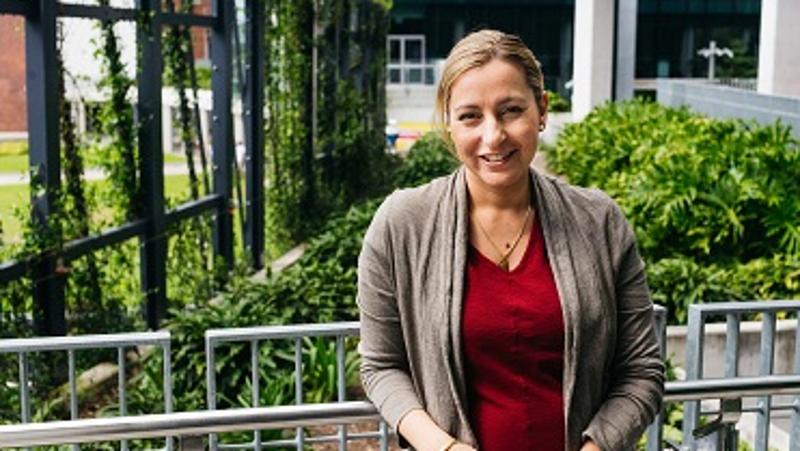
Australian cities should emulate nature to become world-leading liveable cities by 2050, able to protect citizens from heat, flood, smog and disease according to a leading QUT environmental engineer.
“Cities of today are like the computers of the 1960s – exciting in their possibilities, yet still clunky and inefficient,” said Dr Cheryl Desha who is a panellist on the Catching up with The Jetsons: Cities in 2050 event during the World Science Festival Brisbane on Sunday 13 March.
“The potential for humanity on this planet is extraordinary if we can take inspiration from nature and its designs developed over billions of years. Yet it is almost like we are designing in the dark.
“Drought-prone environments, for example, with not much fresh water access can look to nature to solve the problem. The incredible Namibian Beetle of Southern Africa – one of the world’s driest regions, harvests water vapour from fog using its wings. It is the inspiration behind a number of water collection devices in the Middle East and elsewhere.
“Certain plants are quite exceptional at removing particles from the air – a bit like sticky tape can catch dust – so we should be planting them on the sides of buildings to catch particle matter from pollution that can overwhelm cities like Hong Kong and Delhi, literally saving lives.
“Trees use capillary action to draw water from their roots to their canopies. Imagine if we could do that with buildings.”
Dr Desha said the majority of the world’s population lived in cities and yet most were becoming what she termed ‘urban deserts’ and increasingly unhealthy to humans and other species.
“We are surrounded by concrete structures rather than oxygen producing and nurturing atmosphere that nature gives us,” Dr Desha said.
“My vision for 2050 and beyond is that Brisbane and other cities around the world will be functional and resilient; able to blend into the surrounding environment with green space everywhere, coping with the changing weather and climate that will affect us all this century.
“Cities should move things – like cool or warm air, hot and cold water – from place to place as quiet as a rainforest rather than being full of the constant noise of motors and pumps we currently live with.
“We are seeing some cosmetic examples of this in most cities around the world. Singapore, Toronto, Birmingham are all on the front foot, and Brisbane has huge potential.
“My research is concerned with creating a functional environment that builds the resilience of a city to protect us from heat, weather, flooding, smog, mosquito-borne viruses and more. It’s more than window dressing to just make a city look pretty.
“Brisbane could be a world showcase in biophillic (nature-loving) design in sub-tropical environments. We need to be active now as we build – and retrofit – our cities and suburbs. It will require collaboration between all levels of government, the private sector and academia.”
The World Science Festival Brisbane Catching up with The Jetsons: Cities in 2050 panel discussion is on from 4pm-5.30pm at the Griffith University Conservatorium Theatre, South Bank, on Sunday 13 March.
Dr Desha is also participating in the Salon session: Earth’s Evolution: Lessons from the Cosmos at the Queensland Museum on Saturday 12 March (8pm-9.30pm).
The inaugural World Science Festival Brisbane will bring some of the world’s greatest thought leaders to Queensland, showcase local scientists and performers from around the Asia Pacific region, and host the brightest and the best from previous events in New York. It takes place between 9 and 13 March 2016 and is presented by the Queensland Museum.
QUT is part of a national collaborative group of five major Australian universities that form the ATN (Australian Technology Network of Universities).
Media contact:
Amanda Weaver, QUT Media, 07 3138 1841, amanda.weaver@qut.edu.au
After hours: Rose Trapnell, 0407 585 901, media@qut.edu.au




